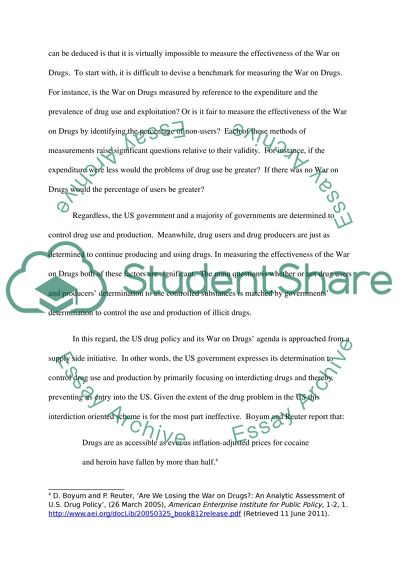Cite this document
(“Effectiveness of the War on Drugs Essay Example | Topics and Well Written Essays - 1250 words”, n.d.)
Retrieved from https://studentshare.org/macro-microeconomics/1424897-effectiveness-of-the-war-on-drugs
Retrieved from https://studentshare.org/macro-microeconomics/1424897-effectiveness-of-the-war-on-drugs
(Effectiveness of the War on Drugs Essay Example | Topics and Well Written Essays - 1250 Words)
https://studentshare.org/macro-microeconomics/1424897-effectiveness-of-the-war-on-drugs.
https://studentshare.org/macro-microeconomics/1424897-effectiveness-of-the-war-on-drugs.
“Effectiveness of the War on Drugs Essay Example | Topics and Well Written Essays - 1250 Words”, n.d. https://studentshare.org/macro-microeconomics/1424897-effectiveness-of-the-war-on-drugs.


